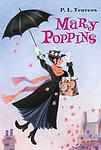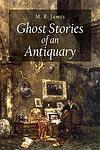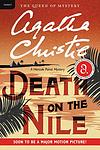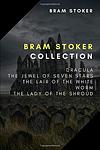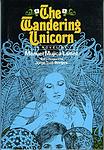The Greatest English, Argentinian "Fiction" Books Since 1900
Click to learn how this list is calculated.
This list represents a comprehensive and trusted collection of the greatest books. Developed through a specialized algorithm, it brings together 300 'best of' book lists to form a definitive guide to the world's most acclaimed books. For those interested in how these books are chosen, additional details can be found on the rankings page.
Genres
Countries
Date Range
Reading Statistics
Click the button below to see how many of these books you've read!
Download
If you're interested in downloading this list as a CSV file for use in a spreadsheet application, you can easily do so by clicking the button below. Please note that to ensure a manageable file size and faster download, the CSV will include details for only the first 500 books.
Download-
1. Fictions by Jorge Luis Borges
"Collected Fiction" is a compilation of stories by a renowned author that takes readers on a journey through a world of philosophical paradoxes, intellectual humor, and fantastical realities. The book features a range of narratives, from complex, multi-layered tales of labyrinths and detective investigations, to metaphysical explorations of infinity and the nature of identity. It offers an immersive and thought-provoking reading experience, blurring the boundaries between reality and fiction, past and present, and the self and the universe.
-
2. Labyrinths by Jorge Luis Borges
"Labyrinths" is a collection of short stories and essays that explore complex themes of infinity, parallel universes, and the blurred lines between reality and illusion. The narratives often feature protagonists who are scholars or librarians, trapped in surreal, metaphysical landscapes. The author's unique writing style combines elements of magical realism, philosophy, and detective fiction, creating an intricate web of narratives that challenge the reader's perception of reality and fiction.
-
3. Hopscotch by Julio Cortázar
This avant-garde novel invites readers into a non-linear narrative that can be read in two different orders, following the life of Horacio Oliveira, an Argentine intellectual living in Paris with his lover, La Maga. The story explores philosophical and metaphysical themes, delving into the nature of reality and the human condition, while also examining the struggles of intellectual and emotional life. The second part of the novel takes place in Buenos Aires, where Horacio returns after La Maga disappears, and where he grapples with his past, his identity, and his place in the world.
-
4. Mary Poppins by PL Travers
In this beloved classic, a magical and enigmatic nanny named Mary Poppins arrives at the Banks' household to care for their mischievous children. With her peculiar and extraordinary abilities, Mary Poppins takes the children on whimsical adventures, teaching them valuable life lessons along the way. As the family learns to appreciate the wonder and joy in everyday life, Mary Poppins proves that even the most ordinary moments can be extraordinary.
-
5. Don Segundo Sombra by Ricardo Güiraldes
This classic Argentine novel is a coming-of-age story set in the Pampas, focusing on the life of a young orphan who finds guidance and mentorship under the wing of a seasoned gaucho named Segundo Sombra. Through his experiences in the vast landscapes of rural Argentina, the protagonist learns the values of courage, responsibility, and freedom, embodying the gaucho spirit. The narrative, rich in poetic imagery and symbolism, explores themes of identity, tradition, and the passage into adulthood, offering a deep reflection on the essence of Argentine culture and the timeless bond between man and nature.
-
6. Los Siete Locos by Roberto Arlt
"Los Siete Locos" is a complex and dark novel set in the 1920s in Buenos Aires. The story revolves around a man who, disillusioned with his mundane life and the corruption he sees around him, becomes involved with a group of anarchists who plan to overthrow the government. The protagonist is drawn into a world of madness, conspiracy, and philosophical debate, as he grapples with his own sanity and the morality of his actions. The book explores themes of existentialism, societal decay, and the blurred line between sanity and insanity.
-
7. Ghost Stories Of An Antiquary by M. R. James
"Ghost Stories of an Antiquary" is a collection of chilling tales that delve into the supernatural and macabre. Written by M. R. James, these stories transport readers to eerie settings, where ancient artifacts, haunted houses, and vengeful spirits lurk. With a masterful blend of suspense and atmospheric descriptions, James weaves narratives that leave readers on the edge of their seats, questioning the boundaries between the real and the supernatural. Each story is a haunting exploration of the human psyche and the terrifying unknown, making this collection a must-read for fans of classic ghost stories.
-
8. Kiss of the Spider Woman by Manuel Puig
"Kiss of the Spider Woman" is a novel set in an Argentine prison where two cellmates, a gay window dresser and a political revolutionary, share stories to pass the time. The window dresser recounts various films he's seen, which often involve strong, glamorous women, while the revolutionary shares his political ideologies. As they spend time together, they form an unlikely bond, exploring themes of sexuality, oppression, and the power of storytelling.
-
9. The Arabian Nightmare by Robert Irwin
"The Arabian Nightmare" is a captivating and surreal journey through the dreams and nightmares of a young scholar named Abdulla. Set in medieval Cairo, the book explores the blurred lines between reality and fantasy as Abdulla becomes entangled in a web of magical creatures, mythical beings, and supernatural occurrences. With richly descriptive prose and a deep understanding of Arabian folklore, the story delves into themes of identity, love, and the power of storytelling, leaving readers questioning the nature of dreams and the boundaries of the human imagination.
-
10. Death On The Nile by Agatha Christie
"Death On The Nile" is a thrilling murder mystery set aboard a luxurious Nile river cruise. When a young and beautiful heiress is found dead, renowned detective Hercule Poirot must navigate a web of deceit, jealousy, and hidden motives to uncover the truth behind her untimely demise. As the suspects become increasingly desperate to protect their secrets, Poirot races against time to solve the puzzle before the killer strikes again.
-
11. Betrayed by Rita Hayworth by Manuel Puig
The novel explores the life of a young boy growing up in a small town in Argentina during the 1930s and 1940s. It is a coming-of-age story that uses a unique narrative structure, incorporating a mix of dialogues, inner thoughts, and film scripts to depict the protagonist's life. The boy's obsession with Hollywood films and glamorous actresses, particularly Rita Hayworth, serves as an escape from his oppressive environment and shapes his understanding of the world. The book also delves into themes of sexuality, identity, and the impact of popular culture.
-
12. Los lanzallamas by Roberto Arlt
"Los lanzallamas" is a novel set in Buenos Aires in the 1920s, revolving around the lives of a group of characters who are marginalized by society. The protagonist, a failed inventor turned anarchist, is manipulated into participating in a plot to overthrow the government and establish a new social order. The plot fails, leading to tragic consequences for the characters involved. The novel explores themes of alienation, disillusionment, and the struggle for individual freedom in a repressive society.
-
13. Heartbreak Tango by Manuel Puig
"Heartbreak Tango" is a tragicomedy that explores the intertwined lives of the inhabitants of a small town in Argentina. The narrative revolves around the life and death of a charismatic but flawed young man, Juan Carlos, who has relationships with multiple women, each of whom remember him differently. The story is told through a series of letters, diary entries, police reports, and gossip, presenting a multifaceted view of Juan Carlos and the impact he had on those around him. The novel also critiques the shallowness and hypocrisy of society, particularly in its treatment of women.
-
14. Dreamtigers by Jorge Luis Borges
"Dreamtigers" is a collection of short stories, essays, and poems that delve into the realm of metaphysics, infinity, mirrors, and changing identities. The book explores the author's fascination with the dream world and the blurred boundaries between reality and imagination. The narrative is filled with complex themes, paradoxes, and illusions, often inspired by the author's own experiences and his love for literature and philosophy.
-
15. The Tunnel by Ernesto Sábato
The book in question is a psychological thriller that delves into the mind of a painter who becomes obsessively infatuated with a woman he barely knows. His unrequited love and spiraling madness lead him down a dark path of existential angst, culminating in a shocking act of violence. The narrative unfolds through the artist's perspective, as he reflects on his actions and the alienation he feels from society, revealing the depths of his troubled psyche and his struggle to find meaning in an indifferent world.
-
16. The Witness by Juan José Saer
"The Witness" is a novel that explores the life of a young European boy who is the only survivor of a shipwreck in the 16th century. He is found and raised by a tribe of Indians in South America, where he spends ten years of his life. The boy is eventually found by a band of Spanish conquistadors and returns to Europe, where he becomes a well-respected scholar. The story unfolds as the man, now in his 90s, recounts his experiences and struggles to reconcile his European identity with his decade-long immersion in the tribal culture.
-
17. The Aleph And Other Stories by Jorge Luis Borges
This collection of short stories delves into a world of philosophical puzzles, literary references, and metaphysical intrigue. The narratives, often presented as intellectual exercises, explore themes of infinity, reality, and the nature of language and thought. The centerpiece story features a point in space that contains all other points, providing the protagonist with a vision of the entire universe. The other tales similarly challenge the reader's perception of time and identity, weaving together myth, religion, and history into a complex tapestry that defies conventional storytelling and blurs the line between the real and the imagined.
-
18. The Sheep Look Up by John Brunner
"The Sheep Look Up" is a dystopian science fiction novel that presents a grim and polluted future where environmental degradation and overpopulation have reached catastrophic levels. The story follows various characters as they navigate a world plagued by toxic pollution, food shortages, and rampant disease outbreaks. With a sharp critique of corporate greed and government negligence, the novel explores the consequences of humanity's disregard for the environment and the urgent need for change.
-
19. The Invention Of Morel by Adolfo Bioy Casares
This novel unfolds on a mysterious, deserted island where the protagonist, a fugitive, discovers a strange building and a group of tourists who appear and disappear inexplicably. As he observes them, he falls in love with a woman among the group, but soon realizes that these visitors are not what they seem. The narrative takes a turn into the surreal when he uncovers the workings of a machine invented by a man named Morel, which has the power to record and replay reality. The protagonist grapples with the implications of this invention on his perceptions of love, existence, and the desire for immortality, leading to a haunting exploration of the boundaries between reality and illusion.
-
20. All Fires The Fire by Julio Cortázar
"All Fires The Fire" is a collection of short stories that explores the complexities of human relationships and the blurred lines between reality and imagination. Through vivid and imaginative storytelling, the author delves into themes of love, desire, and the search for meaning in a world filled with uncertainty. Each story presents a unique and thought-provoking narrative, inviting readers to question the boundaries of their own perceptions and the nature of existence itself.
-
21. The Censors by Luisa Valenzuela
"The Censors" is a satirical short story that delves into the life of a man who takes a job as a censor at a government agency in an attempt to intercept and approve his own letter, which he had previously sent abroad. As he becomes increasingly absorbed in his role, he starts to censor letters with zeal, losing sight of his original purpose. The story serves as a cautionary tale about the corrupting influence of power and the ease with which one can become complicit in oppressive systems, ultimately leading to a grim and ironic conclusion where the protagonist falls victim to the very system he sought to manipulate.
-
22. The Jewel Of Seven Stars by Bram Stoker
"The Jewel of Seven Stars" is a gripping gothic horror novel that follows the story of a young archaeologist who becomes entangled in a mysterious and ancient curse. When an Egyptian mummy is brought to London, strange occurrences begin to unfold, leading the protagonist on a perilous journey to uncover the secrets of an ancient queen and her quest for immortality. As the suspense builds, the protagonist must confront supernatural forces and make a desperate attempt to break the curse before it consumes them all.
-
23. The Wandering Unicorn by Manuel Mujica Lainez
"The Wandering Unicorn" is a historical fantasy novel that weaves a tapestry of medieval legends, chivalric adventures, and magical realism. It follows the journey of a young unicorn who, under the guise of a beautiful page, seeks to protect Melusine, a cursed fairy who is half-woman, half-serpent. Set against the backdrop of the Crusades, the narrative intertwines the unicorn's quest for redemption and love with a rich cast of characters, including knights, sorcerers, and mythical creatures. The story delves into themes of immortality, transformation, and the enduring power of myth, all while painting a vivid picture of a bygone era filled with enchantment and intrigue.
-
24. Santa Evita by Tomás Eloy Martínez
"Santa Evita" is a fictionalized account of the life and death of Eva Peron, the beloved First Lady of Argentina. The book delves into the mysterious journey of her embalmed corpse which was moved around the world and hidden for 16 years after her death. The narrative, interwoven with historical facts, explores the cult-like fascination and devotion that surrounded her during her life and continues after her death.
-
25. The Poet And The Lunatics by G. K. Chesterton
"The Poet And The Lunatics" by G. K. Chesterton is a whimsical and satirical novel that follows the adventures of Gabriel Gale, a poet who finds himself entangled in a series of mysterious events. As he navigates through a world populated by eccentric characters and bizarre situations, Gabriel becomes embroiled in a plot involving secret societies, mistaken identities, and the blurred lines between sanity and madness. With his signature wit and clever wordplay, Chesterton explores the nature of art, reality, and the human condition in this delightful and thought-provoking tale.
Reading Statistics
Click the button below to see how many of these books you've read!
Download
If you're interested in downloading this list as a CSV file for use in a spreadsheet application, you can easily do so by clicking the button below. Please note that to ensure a manageable file size and faster download, the CSV will include details for only the first 500 books.
Download


